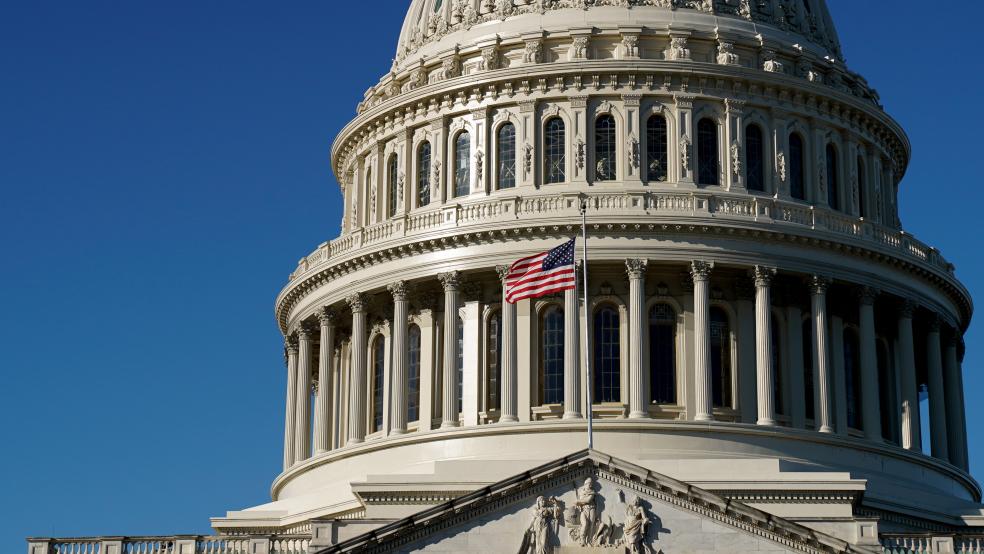Senate Majority Leader Chuck Schumer’s scheduled vote Wednesday on the bipartisan infrastructure framework appears doomed to fail — but that doesn’t mean that the infrastructure plan is dead.
Schumer on Monday set in motion the steps to hold a procedural vote on the on the as-yet unfinished infrastructure legislation Wednesday, but Senate Republicans are reportedly united in their intention to vote against moving forward without a final agreement, meaning that the package won’t be able to get the 60 votes needed to advance.
“We have a pretty good sense of where our members are. They won’t get 60,” Senate Minority Whip John Thune (R-SD) said. “Our members are committed to actually having a bill and [Congressional Budget Office] scores and all that kind of stuff before they vote to get on a bill.”
Centrist Republicans on Tuesday pressed Schumer to postpone the planned vote until Monday to give negotiators more time to resolve their differences and finalize a deal. “My hope is that Sen. Schumer will agree to postpone the vote. We’re making significant progress,” said Sen. Susan Collins (R-ME), one of the negotiators.
Sen. Mitt Romney, another member of the negotiating group, also called for more time. “I think it should be Monday, not Wednesday. Give us time to resolve the remaining issues,” he said. Romney reportedly said that negotiators had resolved three-quarters of the outstanding issues over the last two days and that he expects the rest would be addressed by the end of the week. “We’ll be ready Monday. We won’t have the full text, of course, but we’ll have a detailed outline," he said.
Sen. Bill Cassidy (R-LA), another member of the group, reportedly said he “hopes” a deal can be reached by the end of the week but the negotiators still needed to get feedback from the White House, Congressional Budget Office scorekeepers and other lawmakers.
A note on the pay-fors: CNN Congressional Correspondent Lauren Fox reported Tuesday that multiple aides had pointed out that it was “wild” that Republican negotiators had pushed to eliminate a key financing mechanism — an increase in IRS funding meant to boost tax collections, representing about $100 billion in revenue in the deal they agreed to weeks ago. One Democrat said of the proposed pay-fors in the deal: "[W]e knew damn well some of it was hokey, and we knew we weren't gonna get a CBO score. Now, all of a sudden, they have to have a CBO score and all this stuff. It's fine, but it just takes a lot longer."
Schumer presses ahead: Schumer urged Republicans to agree to advance the bill, arguing that the Senate often votes to begin debate on legislation that is still being negotiated. Schumer said that if that bipartisan bill is not ready, he would fill the shell brought up for the vote with bipartisan transportation, water and energy bills, allowing negotiators more time to finish their work.
“It is not a final deadline for legislative text. It is not a cynical ploy. It is not a fish-or-cut-bait moment. It is not an attempt to jam anyone,” Schumer said on the Senate floor Tuesday. “It is only a signal that the Senate is ready to get the process started – something the Senate has routinely done on other bipartisan bills this year.”
He added: “The bottom line is very simple: if senators agree to start debate, there will be many, many opportunities for the bipartisan group to make their agreement the base of the bill.”
If the vote fails: The bipartisan talks could still continue. “We’ve resurrected everything but Lazarus around here so we can resurrect this one,” Sen. Joe Manchin (D-WV) said after a Democratic lunch on Tuesday. Senate Minority Leader Mitch McConnell (R-KY) told reporters Tuesday that a failed vote would still leave Schumer an opportunity to bring up the bill again once the text is ready. “All that does is give him the opportunity to move to reconsider and if at some other point the bipartisan deal comes together, we can reconsider the vote,” the GOP leader said. “No time is lost by the very simple principle that we’re not going to the bill until we know what the bill is.”
The bottom line: Schumer’s effort to impose a deadline on negotiators after a month of bipartisan talks appears set to fail, and with a crowded legislative calendar, that means the infrastructure bill may not get done before the August recess, as Democrats had hoped.
Budget
Senate GOP Poised to Block Infrastructure Vote as Talks Continue

Reuters/Erin Scott




